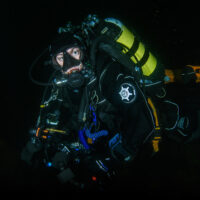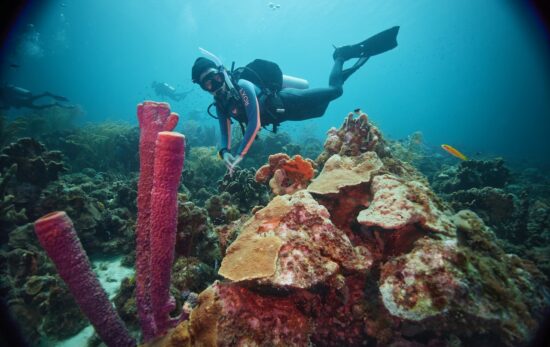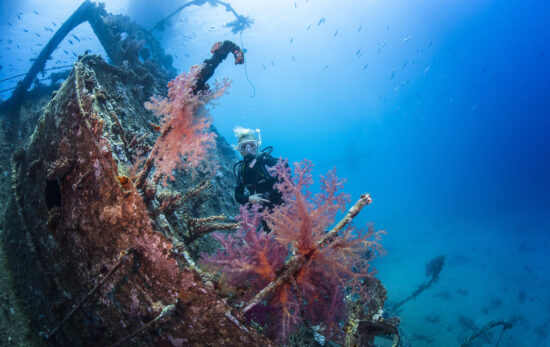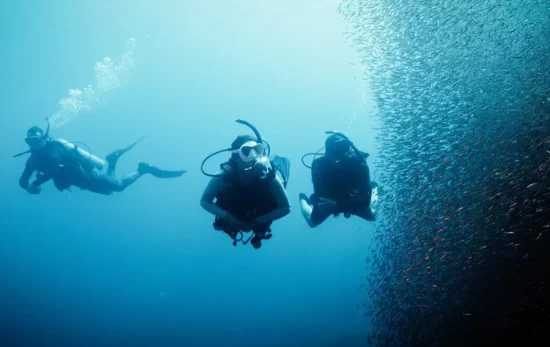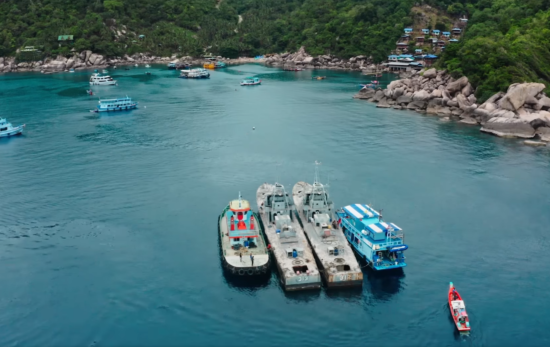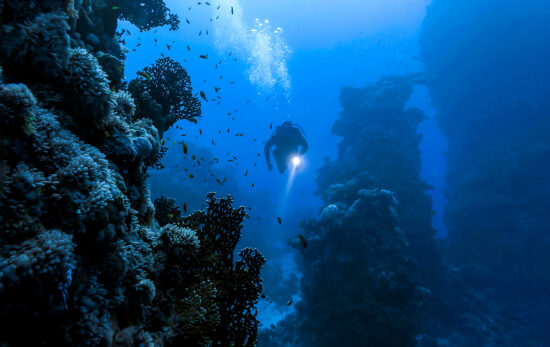So you’ve finished your Open Water Diver certification, but where do you go now? Completing your PADI Open Water Diver course is quite a significant achievement! In fact, you’re now part of a very exclusive club that only around 0.08% of the population are part of. You’ve suddenly gained access to a part of our incredible planet that so few get to experience first had. There’s a whole new world for you to explore! But that can also be quite daunting… so what should you do next? Besides getting experience by diving as much as you can and exploring your local dive sites, if possible, the following five PADI specialties will help you further your scuba diving skills and give you more confidence for underwater exploration.
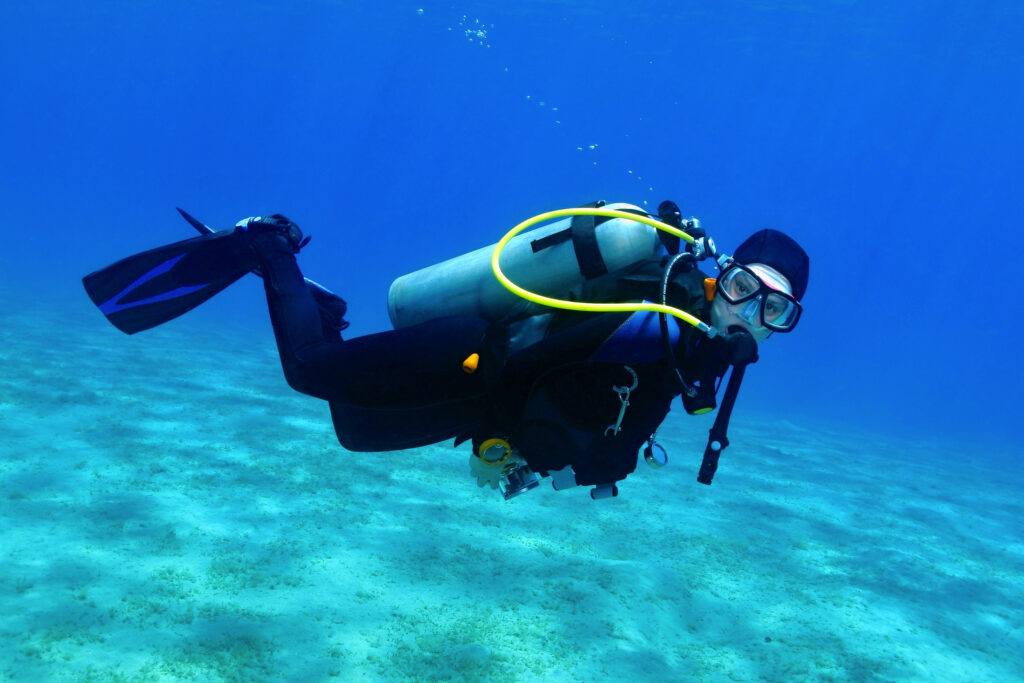
1. Peak Performance Buoyancy
One of the trickiest skills I found personally to master was buoyancy. There’s only one thing worse than being behind a diver with poor buoyancy, kicking up the seabed and generally ruining it for everyone behind them… and that’s being that diver! The Peak Performance Buoyancy speciality course is designed to build on the skills taught in your Open Water Diver course.
Not only that, but with improved buoyancy comes the opportunity to reduce the weights you need to carry. This in turn, can help reduce air consumption and ultimately extend your dive time. It might sound a bit cheesy, but the saying “take only photos, leave only bubbles” is so important! When we’re diving we’re only visitors to the reefs and wrecks. So it’s important to minimize our own direct impact on these fragile habitats. Peak Performance Buoyancy is one of the best PADI specialties for beginners because it will help you be a better dive buddy and less impactful on the environment.
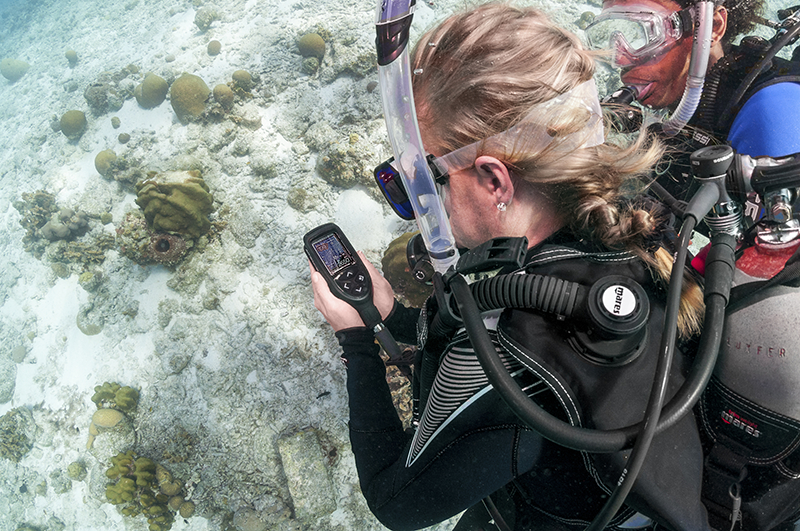
2. Underwater Navigator
For many new divers, their first few dives will likely be with a dive guide, or at least with someone a bit more experienced. But what happens when you dive with someone with the same, or less experience, than you? During your Open Water Diver course, you were taught to navigate along a reciprocal bearing (or a straight line there and back). But, what if you want to deviate and go visit something not “on the line”? Well that’s where the Underwater Navigator speciality course comes in! Knowing how to use natural navigational markers, like reefs, being confident in using your compass to make multiple turns and even being able to estimate the distance you’ve swam makes a massive difference to comfort levels underwater!
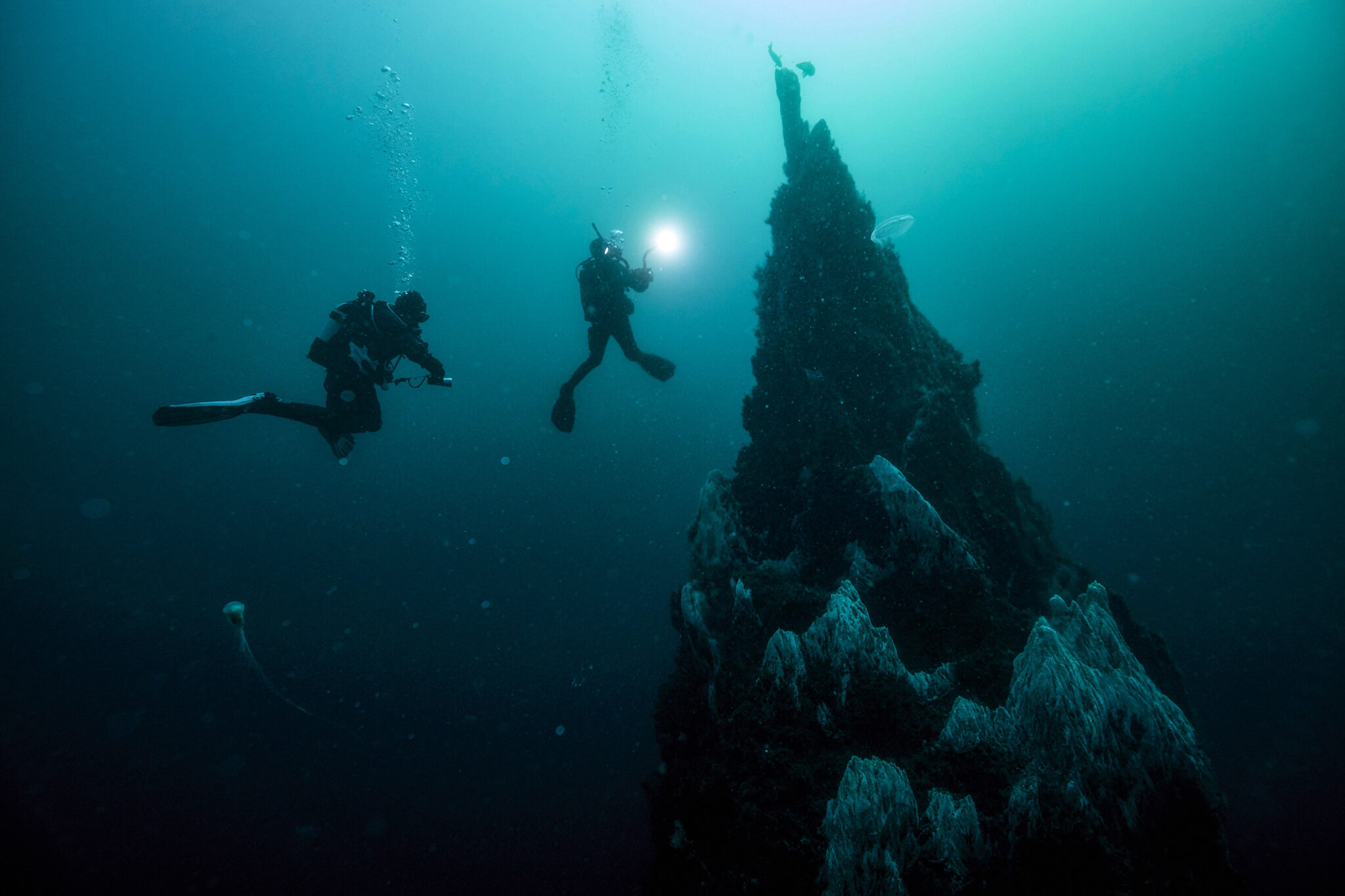
3. Deep Diver
Deeper definitely doesn’t always mean better when it comes to diving! In the 7 years I’ve been diving, some of my best dives have been between 5 and 10m (15 and 30 feet) around the piers in the Clyde here in Scotland. But, the ability to go deeper than the 18m (60 feet) that the Open Water Diver course certifies you to, opens up many more sites to explore. Deep diving provides some new challenges which the Deep Diver speciality covers, like managing your gas.
While always important, when diving below 18m (60 feet), you need to take into account the new depths you’re going to and the implications it will have on your gas consumption. Although it can be felt by some at shallower depths, the effects of nitrogen narcosis start to become a factor around the 30m/100ft as well. The Deep Diver speciality course is an excellent stepping stone for those considering moving into the world of Tec diving.
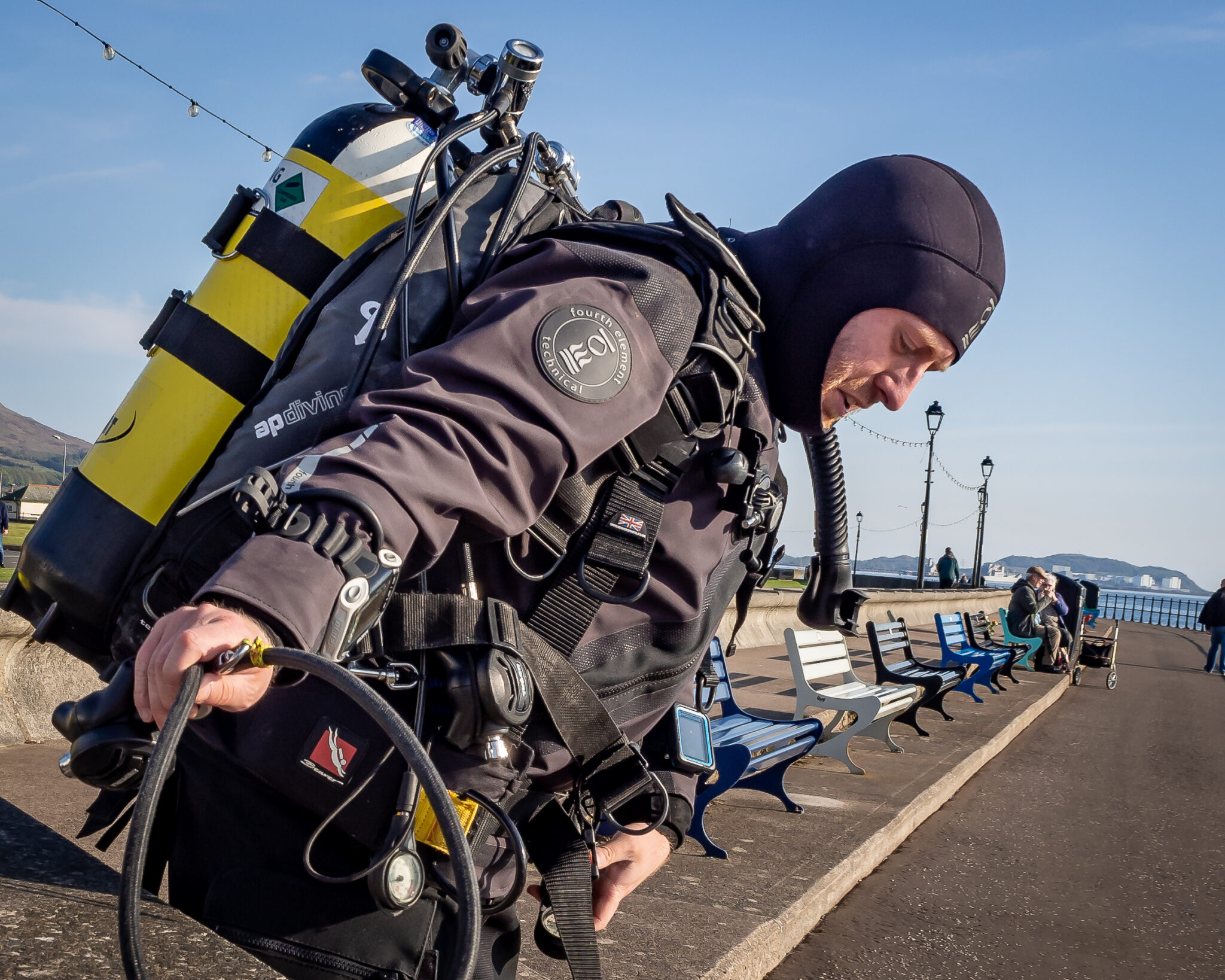
4. Dry Suit Diver
We all dream of diving the warm waters of a tropical paradise! For some of us though, that’s not always the reality. A famous author/hillwalker here in the UK, Alfred Wainwright, once said, “There’s no such thing as bad weather, only unsuitable clothing!” That’s a sentiment that can be applied to diving, too.
Having spoken to a few “warm water” and “holiday” divers over the years, there seems to be a bit of a taboo about dry suit diving. Many see it as being “difficult”, but that couldn’t be further from the truth. The Dry Suit Diver speciality course covers everything from picking the correct type of thermals to wear under the suit through to actually using and building confidence in diving in a dry suit. Dry suit diving is definitely an investment. However, it’s a skill that opens up a whole other side of diving and destinations that you might not normally consider… like Scotland!
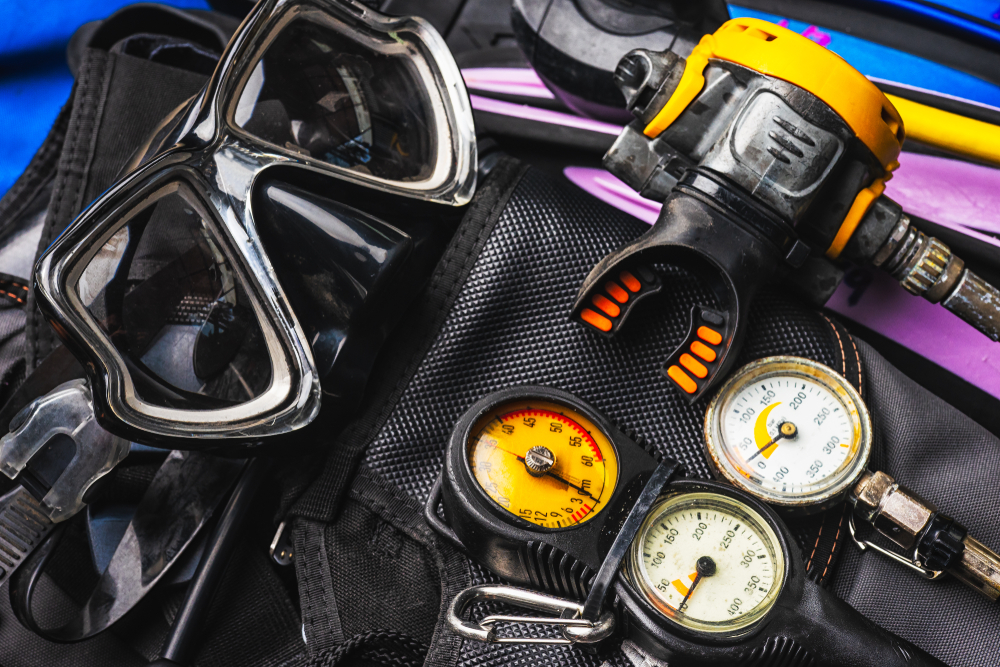
5. Equipment Specialist
No matter how prepared and well looked after your kit is, accidents happen and kit can fail. But, does that have to be the end of your dive day? Chances are, if you’re at a dive center, they will have spares or someone that can help fix the issue, but what if you’re not? You can’t plan for every eventuality, of course, but the Equipment Specialist specialty course introduces you to the concept of a “save-a-dive” kit. It gives you the confidence and experience to make minor repairs to equipment and helps you to avoid missing out on dives because of an issue that could be easily resolved with the right know-how.
What it doesn’t help with is when you forget your fins at the harbur and only realize once you’re out at sea on the dive boat 30 minute from land. I’ve got no idea who that’s happened to…
Once you’ve achieved, you’re Open Water Diver certification, there’s no “right” or “wrong” way to continue your underwater journey. It’s about finding the right path for you, but the key is to never stop diving, and never stop learning.
Can’t decide which specialty course to take? Consider signing up for the Advanced Open Water Diver course, which consists of five adventure dives each of which gives you a glimpse into the specialties. One of the adventure dives will be a deep dive and one of the adventure dives will be a navigation dive. For the other three, you get to choose your own adventure from specialties that interest you. Each dive of the course may be credited toward the related specialty certification.
